Enn eitt risafjármagns batteríiđ međ tillögur sem henta ţeim.
2.9.2009 | 20:15
CHOMSKY: It's disastrous. It's a major attack on democracy, even on markets and trade. It would transfer decision-making, to an extraordinary extent, into the hands of unaccountable, private imperatives. And that's why the negotiations for it were conducted in secret. ...
The MAI would eliminate virtually any democratic social and economic planning. For example, suppose Colorado decided to pass laws for consumer protection requiring investors to look to privilege depressed areas for economic development. Under the MAI, any such laws would be banned. Massachusetts, for example, has a law barring investment in Burma -- that would be banned. In fact, just about all the things that any community might do to try to make investment worthwhile for the community and not just for the investor (would be banned). Furthermore, corporations would have the right to sue governments, which has never been allowed in the past. It's sort of allowed under NAFTA. But they would be allowed to sue governments, from the federal on down to the local level, if there was any infringement on their right to do anything they feel like. These suits would not be in court, they're in private appeal panels which are made up of trade experts, meaning basically representatives of corporations. There's no rules of evidence, they are secret and there is no appeal process. The rulings are made by "trade experts" which are basically corporate representatives.
Of course these (litigation) rights are not reciprocal. All obligations in the MAI fall upon governments, communities and so on. No obligations fall on corporations.
QUESTION: What are the forces behind the MAI?
CHOMSKY: They involve the OECD (the Organization of Economic Cooperation and Development), representing the governments of the richest countries, which was trying to ram it through. ... The groups behind it were the major power centers of the world: the powerful government-states, the transnational corporations, the international corporate sector and the international bureaucracies like the International Monetary Fund and so forth. ... The international organizations of U.S. business were involved directly. In fact, the U.S. Council on International Business already had a publication on it back in January 1996, which they were circulating to their corporate membership. The USCIB requested -- which amounts to a demand -- that the Clinton Administration make the MAI a central part of fast track (the temporarily failed bill endowing the president with trade negotiating authority and limiting Congress to a "yes" or "no" vote), even before the legislation was produced. The White House backed off because they were afraid of the publicity.
QUESTION: You've emphasized the involvement of national governments within this process, but isn't that ironic given the fact that the MAI severely undermines the sovereignty of nation-states?
CHOMSKY: That's on purpose. The leaders of the national governments want to undermine their sovereignty. Remember what a government is. It's not a government of the people. It's a government of powerful interests. This was made dramatically clear in an interchange between the White House and Congress which the press refused to publish. Last November, 25 congressional representatives sent a letter to the White House saying that "it has come to our attention -- due to the efforts of activist groups -- that this treaty (the MAI) has been under negotiations for three years," and they asked a couple questions. One question was, how is it possible that the White House is claiming that they need fast track to be able to negotiate trade agreements, and here's a huge trade agreement they've been intensively negotiating for three years without fast track? Secondly, how is it possible that, given that under the constitution Congress has exclusive control over questions of international commerce, the Clinton Administration had been doing it without even notifying Congress? And third, they went into some of the wording of the treaty and pointed out that it grants corporations rights which are far beyond what U.S. law grants them, and that in fact undermines U.S. sovereignty. A couple of months later they got an answer, which is the kind of answer that you would get if you wrote a letter to the White House -- "Thank you for your letter," and it said nothing. In fact they did issue a formal statement last February, and it was a very interesting statement. It didn't say much but it did say that "we are being very careful to insure that all of our domestic constituencies are actively involved in the process." And that's a very interesting phrase. Who are the "domestic constituencies" that are involved? Well it's not Congress, they had never heard of it. It's not the public, they've been kept out of it totally. The "domestic constituencies" that they're referring to are the U.S. Council on International Business. That's what the White House is telling us in a very crude form. Who are they the government of? People ought to pay attention. Their power rarely reveals its position. That's why I would describe it not as ironic, but rather perfectly natural. ...
If we go back to the Bretton Woods system again, back to 1944, one of the reasons that they gave for requiring regulation on capital flows was what is sometimes called the "incompatibility thesis" by international economists. That thesis states that liberalization of capital tends to undermine free trade, because capital flows make very volatile markets, and makes it much harder for trade to take place. In fact, the natural reaction to freeing up capital is increased protectionism, and incidentally that's what has happened since the early 1970s. So this is not a period of free trade, it's a period of greater regulation of trade. The United States is extreme in this regard. The Reagan Administration broke all records in closing off the U.S. markets to foreign exports. They doubled the protectionist barriers in comparison to any post-war administration. That was a global phenomenon and it's well known among economists. And that is undoubtedly an illustration of the truth: As capital is liberalized, trade growth slows.

|
Ísland taki upp evru |
| Tilkynna um óviđeigandi tengingu viđ frétt | |
Flokkur: Stjórnmál og samfélag | Facebook
 marinogn
marinogn
 egill
egill
 vefritid
vefritid
 vga
vga
 ragnar73
ragnar73
 haukurn
haukurn
 larahanna
larahanna
 bjarnihardar
bjarnihardar
 kreppan
kreppan
 baldvinj
baldvinj
 tilveran-i-esb
tilveran-i-esb
 ak72
ak72
 robertb
robertb
 sailor
sailor
 icekeiko
icekeiko
 astromix
astromix
 hjorleifurg
hjorleifurg
 savar
savar
 hallurmagg
hallurmagg
 juliusbearsson
juliusbearsson
 nordurljos1
nordurljos1
 gammon
gammon
 brylli
brylli
 photo
photo
 gtg
gtg
 snorribetel
snorribetel
 juliusvalsson
juliusvalsson
 manisvans
manisvans
 rocco22
rocco22
 birgitta
birgitta
 heimssyn
heimssyn
 holmdish
holmdish
 pallvil
pallvil
 attilla
attilla
 alit
alit
 thormar
thormar
 helgasigrun
helgasigrun
 helgadora
helgadora
 klerkur
klerkur
 vilhelmina
vilhelmina
 svanurg
svanurg
 fidrildi2707
fidrildi2707
 thokri
thokri
 neytendatalsmadur
neytendatalsmadur
 joninaottesen
joninaottesen
 axelthor
axelthor
 svartur
svartur
 hugdettan
hugdettan
 taoistinn
taoistinn
 snjolfur
snjolfur
 maeglika
maeglika
 olii
olii
 diesel
diesel
 voff
voff
 annabjo
annabjo
 utvarpsaga
utvarpsaga
 axelpetur
axelpetur
 thjodarsalin
thjodarsalin
 formosus
formosus
 baldvinb
baldvinb
 launafolk
launafolk
 gattin
gattin
 einarbb
einarbb
 gustichef
gustichef
 elin
elin
 estheranna
estheranna
 eyglohardar
eyglohardar
 fannarh
fannarh
 finni
finni
 fhg
fhg
 vidhorf
vidhorf
 bofs
bofs
 muggi69
muggi69
 sverrirth
sverrirth
 gmaria
gmaria
 goodster
goodster
 skulablogg
skulablogg
 haddi9001
haddi9001
 don
don
 ingolfurasgeirjohannesson
ingolfurasgeirjohannesson
 jennystefania
jennystefania
 johannesthor
johannesthor
 ravenyonaz
ravenyonaz
 tankur
tankur
 islandsfengur
islandsfengur
 fiski
fiski
 jonl
jonl
 jonvalurjensson
jonvalurjensson
 jorunnfrimannsdottir
jorunnfrimannsdottir
 askja
askja
 ludvikludviksson
ludvikludviksson
 maggij
maggij
 elvira
elvira
 mariakr
mariakr
 neddi
neddi
 olei
olei
 psi
psi
 raudurvettvangur
raudurvettvangur
 reynir
reynir
 robertthorh
robertthorh
 fullvalda
fullvalda
 duddi9
duddi9
 skuldlaus
skuldlaus
 spurs
spurs
 thorthunder
thorthunder
 theodorn
theodorn
 vest1
vest1
 mingo
mingo
 thordisb
thordisb
 tbs
tbs
 toro
toro
 doddidoddi
doddidoddi
 thorsaari
thorsaari
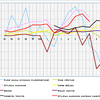
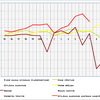
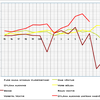
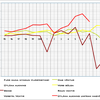
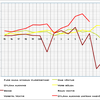


Athugasemdir
Takk fyrir ţetta. Mann hryllir viđ, bókstaflega.
Rúnar Ţór Ţórarinsson, 2.9.2009 kl. 23:48
Bćta viđ athugasemd [Innskráning]
Ekki er lengur hćgt ađ skrifa athugasemdir viđ fćrsluna, ţar sem tímamörk á athugasemdir eru liđin.